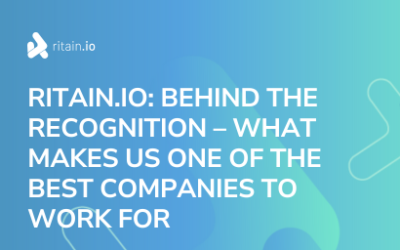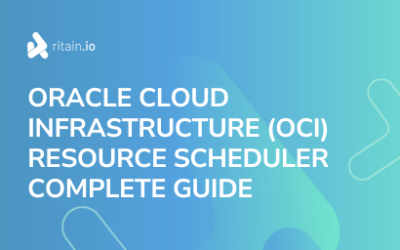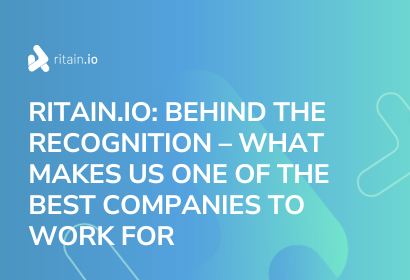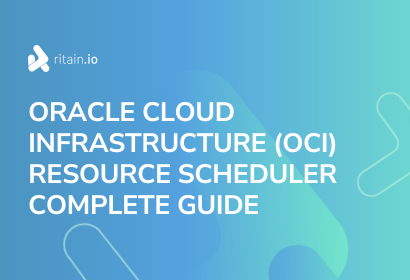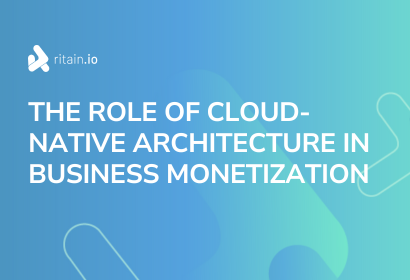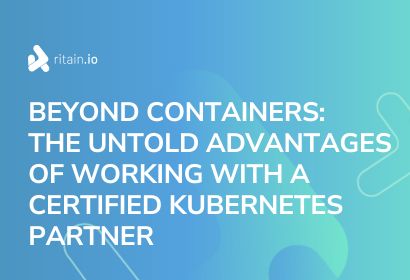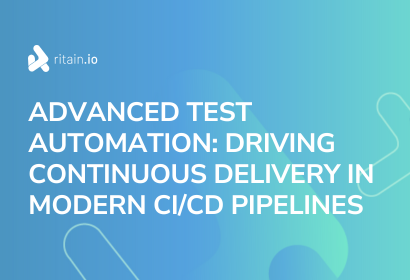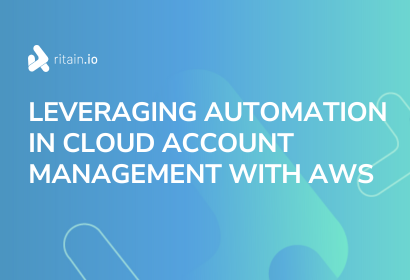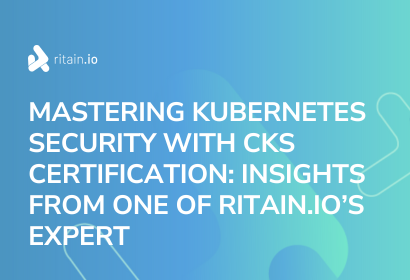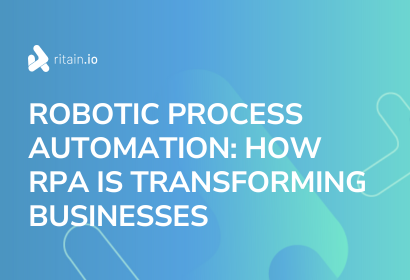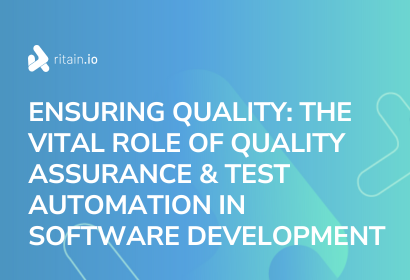BLOGS AND INSIGHTS:
UNLOCKING BUSINESS POTENTIAL: ACHIEVING SYNERGY BETWEEN CLOUD COMPUTING AND DEVOPS
Cloud computing has emerged as a game-changer for businesses worldwide. By offering on-demand access to computing resources over the Internet, it enables unparalleled flexibility, scalability, and cost-efficiency.
This shift from traditional infrastructure to cloud-based solutions revolutionizes operations, empowering organizations to quickly adapt to market changes and drive innovation. In essence, cloud computing isn’t just a technology, it’s a strategic and required step for businesses aiming to thrive in the modern landscape.
Benefits of cloud computing adoption
Cloud adoption offers a multitude of benefits for businesses seeking to modernize their IT infrastructure and drive digital transformation.
Cost Savings
Migrating to the cloud eliminates the need for hefty upfront investments in hardware and infrastructure. Instead, businesses can leverage the pay-as-you-go model of cloud computing, where they only pay for the resources used. This leads to significant cost savings by reducing capital expenditure and shifting towards operational expenditure. The scalability of cloud resources ensures that businesses can scale their infrastructure up or down based on demand, further optimizing costs.
Scalability
Whether facing sudden spikes in traffic or scaling down during off-peak periods, cloud platforms provide the flexibility to scale resources instantly, ensuring optimal performance and cost-efficiency. This scalability empowers businesses to innovate and respond to market opportunities more rapidly without being hindered by infrastructure limitations.
Flexibility
Cloud adoption enables businesses to embrace a more flexible and agile approach to IT operations. With cloud-based solutions, employees can access applications and data from anywhere with an internet connection, facilitating remote work and collaboration. The cloud supports a variety of deployment models, including public, private, and hybrid clouds, allowing businesses to tailor their infrastructure to meet specific needs and compliance requirements. This flexibility enables businesses to adapt quickly to changing market conditions and seize new opportunities as they arise.
Increased Efficiency
Cloud computing drives operational efficiency by offloading infrastructure management to cloud service providers. This frees up valuable IT resources to focus on strategic initiatives and core business objectives. Also, cloud platforms offer various tools and services that automate tasks, simplify processes, and optimize resource utilization. By leveraging these capabilities, businesses can improve productivity, accelerate time-to-market for new products and services, and enhance overall operational efficiency.
Enhanced Security and Reliability
Security and reliability are paramount concerns for businesses considering cloud adoption. Fortunately, cloud providers invest heavily in security measures and infrastructure redundancy to protect their customers’ data and ensure business continuity. From robust encryption and access controls to data replication and disaster recovery capabilities, cloud platforms offer a comprehensive suite of security features that help businesses mitigate risks and comply with regulatory requirements. Additionally, cloud providers typically guarantee high levels of uptime and reliability, minimizing the risk of downtime and ensuring uninterrupted access to critical resources and applications.
Empowering agility: DevOps, Cloud Computing, and Multi-Cloud strategy
In the modern era of IT operations, the synergy between DevOps methodology and cloud infrastructure is needed for organizations that want to achieve agility, efficiency, and innovation.
DevOps, a cultural and organizational philosophy, emphasizes collaboration and communication between development and operations teams to accelerate software delivery and infrastructure changes. By breaking down silos and fostering a culture of shared responsibility, DevOps promotes continuous integration, continuous delivery (CI/CD), and automation, resulting in faster time-to-market, improved product quality, and enhanced customer satisfaction.
When integrated with cloud infrastructure, DevOps practices become even more powerful, enabling organizations to leverage the scalability, flexibility, and automation capabilities of the cloud to accelerate development cycles and improve overall agility. Cloud-based environments provide the ideal platform for implementing CI/CD pipelines, enabling developers to rapidly deploy code changes and iterate on applications with ease. Cloud-native services and tools facilitate automated testing, deployment, and monitoring, reducing manual intervention and minimizing the risk of errors.
Adopting a multi-cloud strategy further enhances the benefits of DevOps and cloud integration. By leveraging multiple cloud providers such as AWS, GCP, and Azure, organizations gain redundancy, resilience, and vendor diversity, reducing the risk of downtime and data loss. A multi-cloud approach enables businesses to avoid vendor lock-in and leverage each provider’s unique services and features to meet specific business requirements. Whether it’s leveraging Azure’s AI capabilities, GCP’s data analytics tools, or AWS’s serverless computing services, organizations can tailor their cloud infrastructure to optimize performance, cost, and functionality.
AWS, GCP, and Azure comparison: Overview of the major cloud providers
When navigating the landscape of cloud computing, understanding the distinctions among major providers – AWS, GCP, and Azure – is crucial for businesses seeking the optimal solution for their needs. Amazon Web Services (AWS) leads the pack with its extensive range of services and global infrastructure, making it ideal for enterprises with diverse requirements. Its strengths lie in scalability, AI and machine learning capabilities, and a vast ecosystem of third-party integrations.
Google Cloud Platform (GCP), on the other hand, boasts cutting-edge technologies in data analytics and machine learning, backed by Google’s expertise in these domains. GCP’s emphasis on innovation, coupled with its robust security features and developer-friendly tools, appeals to businesses looking to harness advanced data analytics and AI capabilities.
Microsoft Azure stands out for its seamless integration with Microsoft’s suite of productivity tools and services, making it a preferred choice for organizations invested in the Microsoft ecosystem. With a strong focus on hybrid cloud solutions and enterprise-grade security, Azure caters well to businesses with complex IT environments and regulatory compliance requirements.
Partnering with an experienced and trusted provider can make all the difference in achieving success. As an AWS Select Partner, Ritain.io brings to the table a wealth of expertise and credentials that set them apart in the industry. With a deep understanding of AWS services and best practices, Ritain.io is well-equipped to guide businesses through their cloud journey, from initial planning and migration to ongoing optimization and support.
Ritain.io’s proficiency in multi-cloud technology further enhances its value proposition, offering businesses the flexibility to leverage the strengths of multiple cloud providers, including AWS, GCP, and Azure, to meet their unique requirements.
NEWSLETTER
SUBSCRIBE TO OUR NEWSLETTER
Sing up to receive our most recent use cases, blogs and insights.
Best practices for Cloud Computing and DevOps adoption and partnering with Ritain.io for guaranteed success
Embarking on a cloud and DevOps journey requires careful planning and consideration of various factors to ensure success. First and foremost, organizations should establish a clear strategy and roadmap outlining their objectives, timelines, and key milestones for cloud adoption and DevOps implementation. Investing in comprehensive training programs for employees is essential to equip teams with the necessary skills and knowledge to leverage cloud services and DevOps practices effectively.
Thoughtful tool selection plays a critical role in enabling automation, collaboration, and visibility across the development and operations lifecycle. It’s imperative to choose tools that align with organizational goals, integrate seamlessly with existing workflows, and offer robust capabilities for monitoring, deployment, and security.
Cultural considerations are equally vital for the success of cloud and DevOps initiatives. Organizations must foster a culture of collaboration, transparency, and continuous improvement to break down silos between development and operations teams and encourage experimentation and innovation. Leadership buy-in and support are crucial for driving cultural change and promoting a mindset of agility and resilience. By adopting best practices such as cross-functional teams, iterative development cycles, and blameless post-mortems, organizations can cultivate a culture of learning and adaptation that accelerates their cloud and DevOps journey and positions them for long-term success in a rapidly evolving digital landscape.
With Ritain.io’s expertise as an AWS Select Partner and our proficiency in multi-cloud technology, businesses can gain confidence in their ability to leverage the cloud effectively and achieve their strategic objectives. Whether embarking on a cloud migration project, implementing DevOps practices, or optimizing existing cloud infrastructure, Ritain.io’s proven track record and dedication to customer success make them a trusted partner for businesses seeking to unlock the full potential of the cloud. With Ritain.io by your side, your business can navigate the complexities of cloud computing with ease, accelerate innovation, and drive sustainable growth.
Future trends and innovations in Cloud Computing and DevOps
The future of cloud computing and DevOps is characterized by emerging trends such as serverless computing, Kubernetes orchestration, and AI-driven automation. Serverless computing simplifies application development and deployment, while Kubernetes provides a standardized approach to container orchestration, ideal for managing containerized applications across distributed environments. AI-driven automation promises to revolutionize IT operations by automating tasks, optimizing resource utilization, and enhancing operational efficiency. These trends are set to reshape the way organizations approach IT operations, driving greater agility, resilience, and innovation in the cloud-native era.
Looking ahead, these trends are likely to converge, leading to even greater synergy between cloud computing and DevOps. As organizations continue to embrace cloud-native architectures and DevOps practices, technologies like serverless computing and Kubernetes orchestration will become increasingly integrated into the fabric of IT operations. AI-driven automation will play a central role in optimizing workflows, enabling predictive analytics, and enhancing decision-making processes. These trends will empower organizations to innovate faster and scale more efficiently.
Conclusion
In conclusion, the future of cloud computing and DevOps holds immense potential for organizations seeking to innovate and thrive in the digital age. With trends like serverless computing, Kubernetes orchestration, and AI-driven automation shaping the landscape, businesses have unique opportunities to accelerate and simplify their operations and drive sustainable growth. However, success in this dynamic environment requires strategic planning, technological expertise, and the right partnerships.
This is where Ritain.io shines as a trusted ally for organizations navigating their cloud and DevOps journey. As an AWS Select Partner with proficiency in multi-cloud technology, Ritain.io offers invaluable guidance and support to help businesses leverage the cloud effectively. By collaborating with Ritain.io, organizations can harness the power of emerging technologies, drive operational excellence, and position themselves for success in an ever-evolving digital landscape. Together, we can unlock new possibilities, innovate with confidence, and achieve your business strategic objectives in the cloud.
PROOF OF SUCCESS
Check our
Blogs and News
Ritain.io: Behind the recognition – What makes us one of the best companies to work for
BLOGS AND INSIGHTS:RITAIN.IO: BEHIND THE RECOGNITION – WHAT MAKES US ONE OF THE BEST COMPANIES TO WORK FORRitain.io has proudly been named one of the Best Companies to Work For by EXAME magazine and ManpowerGroup Portugal. This recognition is a testament to our...
OCI Resource Scheduler: Complete Guide for Implementation
BLOGS AND INSIGHTS:ORACLE CLOUD INFRASTRUCTURE (OCI) RESOURCE SCHEDULER: COMPLETE GUIDE FOR IMPLEMENTATIONWhat is OCI Resource Scheduler for? The OCI Resource Scheduler is a cloud-native service provided by Oracle Cloud Infrastructure (OCI) to automate the...


